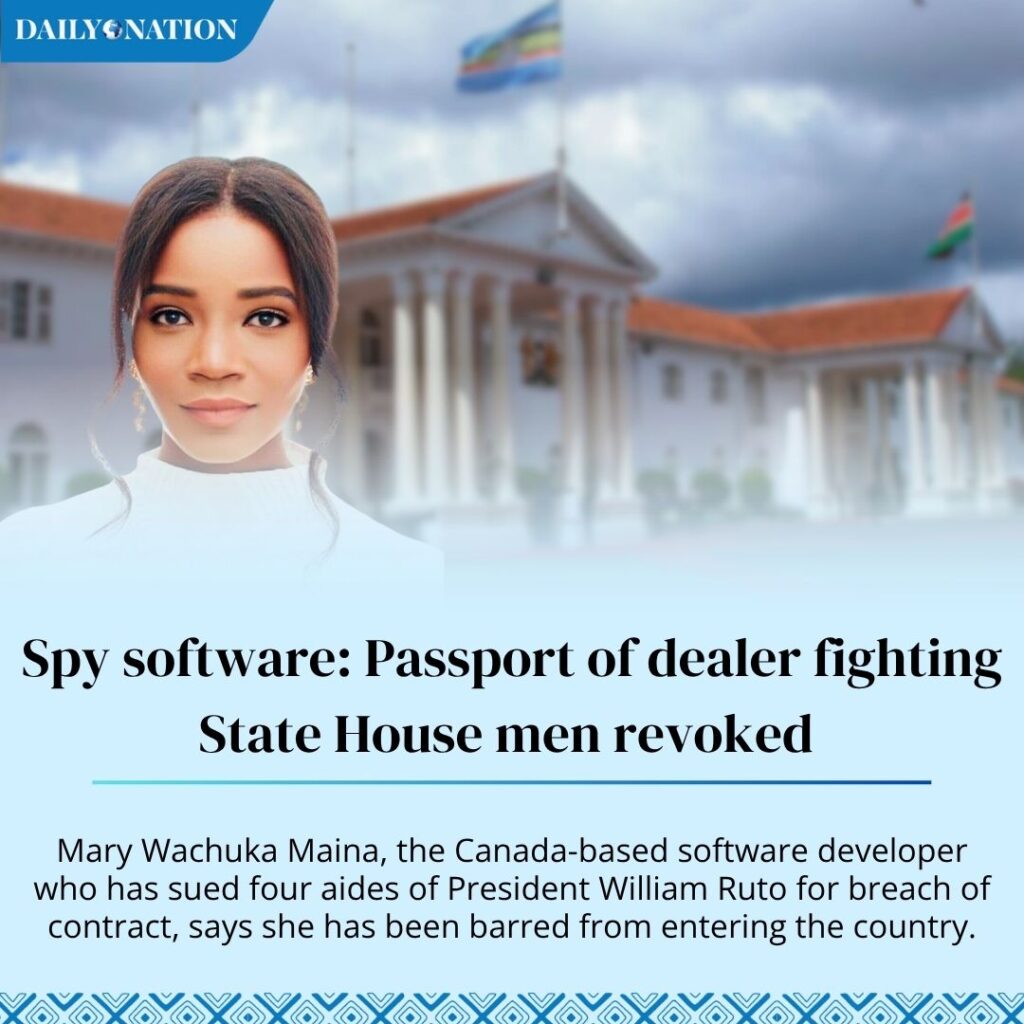Mary Wachuka, a software developer based in Canada and a dual Kenyan-Canadian citizen, is now at the center of a legal fight with top Kenyan government officials.
She claims that the officials broke a contract they made with her to create a spying and propaganda software system.
Wachuka says she was working on a system meant to control online criticism and help President William Ruto in his 2027 re-election campaign.
According to her, when she decided to pursue legal action for the broken agreement, her Kenyan passport was cancelled as a way to intimidate her. She discovered this at a Canadian airport, and though a government insider confirmed the cancellation, no official reason was given.
Wachuka is suing several individuals, including Head of Public Service Felix Koskei, National Treasury Principal Secretary Chris Kiptoo, businessman Jayesh Saini, and President Ruto’s speech writer Eric Ng’eno.
In her lawsuit, she is demanding Sh123 million for developing the software and an additional Sh292 million as compensation for the damages she claims to have suffered.
She says that apart from the passport cancellation, she received threats and was asked to deregister her SIM card and explain her location. She also had issues with her postpaid phone line, which she believes were connected to the case.
The defendants have all denied the allegations. They say they have never met Wachuka and claim the software project itself would be illegal under Kenyan laws.

Eric Ng’eno admitted to meeting Wachuka but insists it was a personal interaction, not an official one. He also claims he rejected her proposal once he realized it went against Kenya’s Constitution and Data Protection laws.
Chris Kiptoo and Felix Koskei also say they never had any communication with Wachuka and dismissed any suggestion that government funds were involved in such a deal.
Jayesh Saini, on the other hand, called the entire lawsuit baseless and full of lies.
The case has drawn interest because of the serious accusations, the amount of money involved, and the questions it raises about government transparency and the protection of individual rights.
Reports from Nation.africa, have highlighted the back-and-forth between Wachuka and the accused officials. Some documents from the court mention how meetings took place between Wachuka and these officials, including one at a restaurant in Nairobi and another at an office in Parklands.
She says they discussed how the software could monitor opposition figures, block negative content online, and improve Ruto’s image. She even says Saini was introduced as someone who would fund the project and handle the payments.
As of now, the case is still in court, and no ruling has been made. The defendants maintain they had no part in the software plan and stress that it would have been illegal. Wachuka continues to push for compensation, saying her rights were violated and that she was targeted unfairly.
The case has caused public discussion about the use of technology for political control, the responsibility of government officers.





















Add Comment